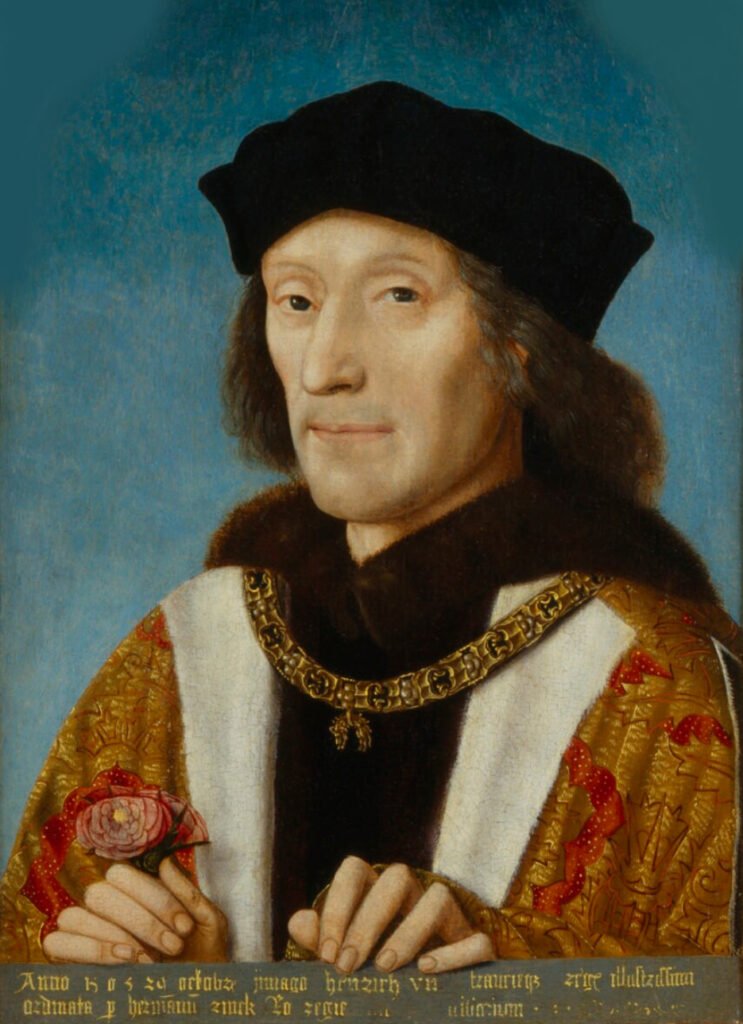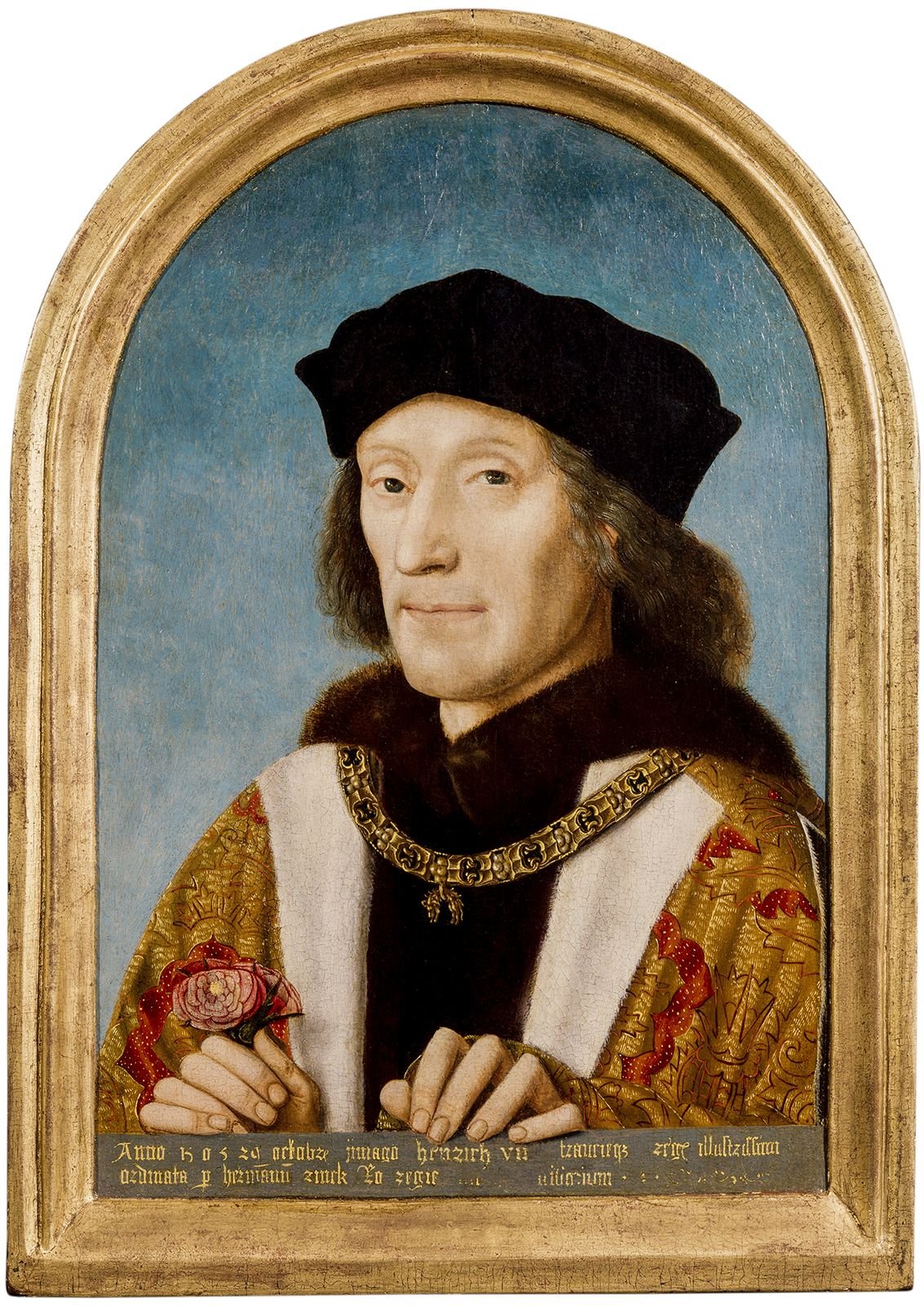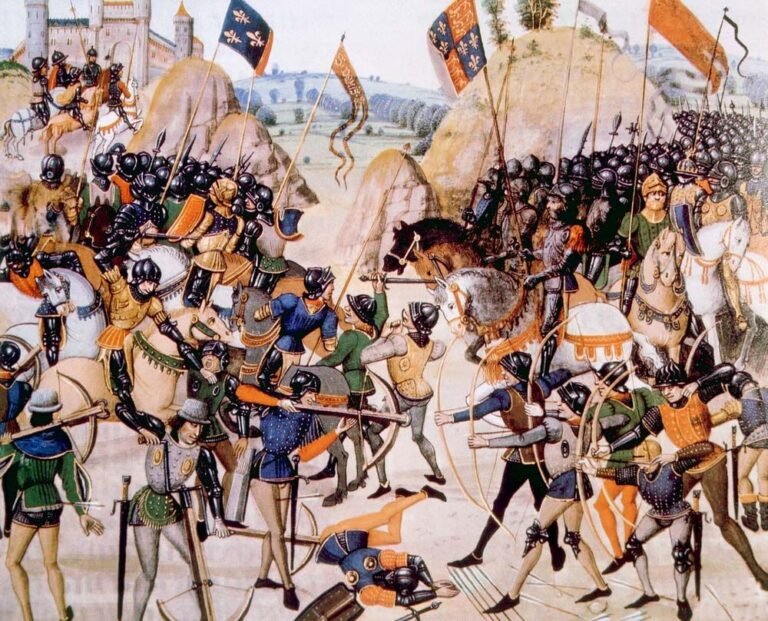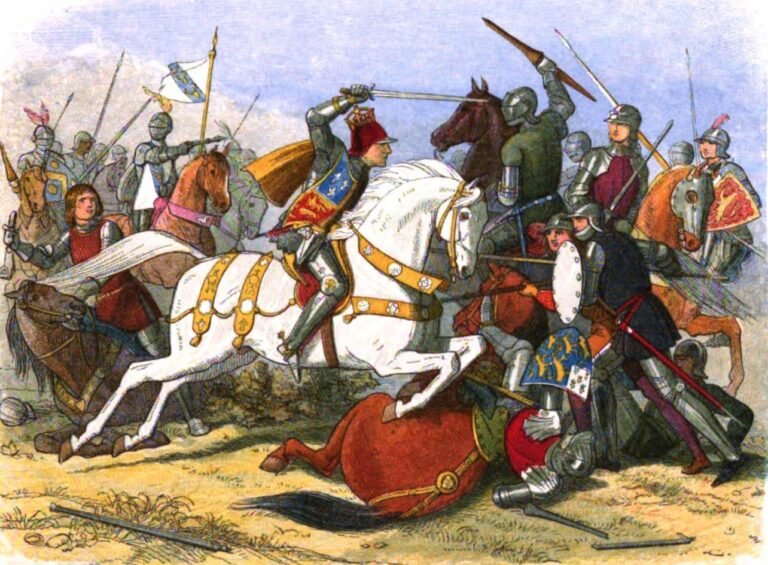Henry VII is an important figure in English history. His reign marked the end of the Wars of the Roses.
Henry VII, born in 1457, became king in 1485. His rise to power ended years of conflict between two rival houses, Lancaster and York. As the first monarch of the Tudor dynasty, he brought stability to England. His marriage to Elizabeth of York united the warring factions.
Under Henry’s rule, the nation saw many changes. He strengthened the monarchy and improved the economy. His policies laid the foundation for future prosperity. Learning about Henry VII helps us understand the significant shifts in this period. His legacy continues to influence English history. Let’s explore his life and impact in more detail.
Early Life
Henry VII, the first monarch of the Tudor dynasty, had a fascinating early life. His journey from a young boy to the throne of England is filled with challenges and adventures. Understanding his early life provides insight into the man who would become a pivotal figure in English history.
Birth And Family Background
Henry VII was born on January 28, 1457, at Pembroke Castle in Wales. His mother, Margaret Beaufort, was a strong and determined woman. She was a descendant of John of Gaunt, making Henry a distant relative of the royal family.
Henry’s father, Edmund Tudor, was the Earl of Richmond. Unfortunately, he died before Henry was born. This left young Henry with a complex family background and a claim to the English throne through his mother’s lineage.
| Parent | Relation |
|---|---|
| Margaret Beaufort | Mother |
| Edmund Tudor | Father |
Exile And Upbringing
Henry’s early years were marked by political instability. The Wars of the Roses, a series of civil wars, threatened his safety. In 1471, he fled to Brittany with his uncle, Jasper Tudor, to escape the Yorkist forces.
During his exile, Henry received a good education. He learned about politics, war, and diplomacy. This period helped shape his character and prepared him for future challenges.
Living in a foreign land, Henry had to adapt and survive. He built alliances and learned valuable lessons about leadership and strategy. These experiences were crucial for his eventual claim to the English throne.

Credit: en.wikipedia.org
Claim To The Throne
Henry VII’s claim to the throne was a crucial part of English history. His ascent marked the end of a turbulent period known as the Wars of the Roses. Henry’s path to kingship was fraught with challenges and significant battles.
Wars Of The Roses
The Wars of the Roses were a series of civil wars fought in England. These conflicts pitted two powerful families against each other: the House of Lancaster and the House of York. Henry VII belonged to the House of Lancaster.
These wars spanned over three decades. Many battles were fought, and many lives were lost. The conflict’s main goal was control of the English throne. Both houses had a valid claim, which made the wars particularly brutal.
Henry’s mother, Lady Margaret Beaufort, was a direct descendant of John of Gaunt. John of Gaunt was a son of King Edward III. This lineage gave Henry a distant yet legitimate claim to the throne.
Battle Of Bosworth Field
The Battle of Bosworth Field was the decisive battle in the Wars of the Roses. This battle took place on August 22, 1485. Henry’s forces faced the army of King Richard III, the reigning king from the House of York.
The battle was intense and bloody. Henry’s victory was largely due to the defection of key nobles from Richard’s side. These defections weakened Richard’s forces and shifted the battle in Henry’s favor.
King Richard III was killed in the battle. His death marked the end of the Yorkist reign. With Richard’s defeat, Henry VII claimed the throne and was crowned king. This victory effectively ended the Wars of the Roses and started the Tudor dynasty.
Henry’s reign brought stability to England after years of conflict. His claim to the throne, though initially tenuous, became solidified through his actions and leadership.
Consolidation Of Power
Henry VII rose to power during a turbulent time in England’s history. After winning the Battle of Bosworth Field in 1485, he became the first monarch of the House of Tudor. His reign marked the end of the Wars of the Roses, a series of conflicts between the houses of Lancaster and York. One of Henry’s main goals was the consolidation of power to ensure the stability of his reign and the future of the Tudor dynasty.
Marriage To Elizabeth Of York
One of Henry’s most significant steps in consolidating power was his marriage to Elizabeth of York. This union was strategically important. It united the warring houses of Lancaster and York, symbolizing the end of the Wars of the Roses. By marrying Elizabeth, Henry strengthened his claim to the throne and gained the support of Yorkist loyalists.
Elizabeth of York was the daughter of Edward IV, a Yorkist king. Their marriage produced children who had both Lancastrian and Yorkist blood, further solidifying the Tudor claim. This union brought peace and stability to a divided nation.
Eliminating Rivals
Henry VII also took decisive steps to eliminate his rivals. He faced threats from Yorkist supporters who still had claims to the throne. To secure his position, Henry employed various strategies to neutralize these threats.
- Imprisonment: Henry imprisoned many Yorkist claimants to prevent them from challenging his rule.
- Execution: Some rivals were executed to remove any potential threats permanently.
- Marriage Alliances: Henry arranged marriages to neutralize potential Yorkist supporters and bring them into his fold.
By taking these actions, Henry successfully reduced the number of claimants to the throne. This not only secured his reign but also brought stability to England.
Henry’s efforts to consolidate power were effective. His reign brought an end to decades of civil war and laid the foundation for a prosperous and stable England under the Tudor dynasty.
Reforms And Policies
Henry VII, the first Tudor king, is known for his significant reforms and policies. His reign marked a period of change that stabilized England after years of conflict. Let’s explore the key areas of his reforms.
Financial Reforms
Henry VII focused on improving England’s finances. He implemented several measures to increase revenue and reduce expenditure.
- Efficient Tax Collection: Henry improved the system of tax collection. He made sure taxes were collected more efficiently.
- Crown Lands: He reclaimed crown lands that had been lost during the Wars of the Roses. This increased royal income.
- Bonds and Recognisances: These were agreements where subjects promised to pay a sum if they broke a condition. This secured loyalty and funds.
These measures strengthened the royal treasury and reduced the need for parliamentary grants.
Legal And Administrative Changes
Henry VII made important legal and administrative changes to centralize power and maintain order.
- Star Chamber: He used the Star Chamber to deal with powerful nobles. This court ensured that justice was served swiftly and fairly.
- Justices of the Peace: Henry expanded the role of Justices of the Peace. They maintained law and order in local areas.
- Royal Council: He created a more professional Royal Council. This body advised the king and helped govern the country.
These changes helped Henry VII to control the nobility and strengthen his rule over England.
Foreign Relations
Henry VII of England was a master of foreign relations. His diplomatic strategies helped solidify England’s position in Europe. This section explores how his diplomatic marriages and treaties shaped his reign.
Diplomatic Marriages
Henry VII used marriages to secure alliances. He married his son, Arthur, to Catherine of Aragon. This linked England with Spain. After Arthur’s death, Henry arranged for Catherine to marry his other son, Henry VIII. This kept the Spanish alliance intact.
Henry VII also married his daughter, Margaret, to James IV of Scotland. This aimed to bring peace between England and Scotland. These marriages were strategic moves. They strengthened England’s position in Europe.
Treaties And Alliances
Henry VII signed several important treaties. The Treaty of Medina del Campo was one of them. This treaty with Spain ensured mutual protection and trade benefits. Another significant treaty was the Treaty of Etaples with France. This treaty stopped French support for Henry’s enemies.
Henry also formed alliances with the Holy Roman Empire. These alliances provided security against threats from other European powers. His treaties and alliances were essential for maintaining peace and stability.
| Treaty | Partner | Purpose |
|---|---|---|
| Treaty of Medina del Campo | Spain | Mutual protection, trade benefits |
| Treaty of Etaples | France | Stop support for enemies |
Henry VII’s foreign relations were key to his reign. His diplomatic marriages and treaties strengthened England’s position. They ensured peace and stability for the nation.
Challenges To The Throne
Henry VII’s reign was marked by numerous challenges. He faced threats from pretenders and rebellions. His quest to secure the succession was relentless.
Pretenders And Rebellions
Henry VII had to deal with several pretenders. These individuals claimed to be rightful heirs to the throne. Notable among them were Lambert Simnel and Perkin Warbeck. Simnel claimed to be Edward Plantagenet. He gained support from Yorkists and even foreign powers.
Perkin Warbeck was another significant threat. He claimed to be Richard of Shrewsbury, one of the Princes in the Tower. Warbeck’s cause gained significant support. He was backed by Margaret of Burgundy, among others.
| Pretender | Claim | Supporters |
|---|---|---|
| Lambert Simnel | Edward Plantagenet | Yorkists, Foreign Powers |
| Perkin Warbeck | Richard of Shrewsbury | Margaret of Burgundy |
These pretenders led to significant rebellions. The Battle of Stoke Field in 1487 was a crucial moment. Henry defeated Simnel’s forces there. Warbeck’s rebellion also ended with his capture and execution.
Securing The Succession
Securing the succession was a major concern for Henry VII. He married Elizabeth of York to unite the warring factions. This marriage symbolized the end of the Wars of the Roses. It also strengthened his claim to the throne.
Henry focused on securing his children’s futures. His eldest son, Arthur, married Catherine of Aragon. This alliance aimed to secure peace with Spain. After Arthur’s untimely death, Henry ensured his second son, Henry, married Catherine.
- Married Elizabeth of York
- Arranged strategic marriages for his children
- Strengthened alliances with powerful nations
Henry VII also improved the financial stability of England. He implemented various policies to enhance royal revenues. This helped him maintain a strong and stable rule.
Cultural Impact
Henry VII’s reign marked a significant period in English cultural history. His contributions to the arts and education left a lasting legacy. His influence helped shape the cultural landscape of England.
Patronage Of The Arts
Henry VII was a great supporter of the arts. He funded many artists and craftsmen. This support led to the creation of beautiful works of art. His patronage helped the Renaissance movement in England. Many famous artists flourished during his reign.
Henry VII also took interest in architecture. He commissioned several important buildings. One notable example is the Henry VII Chapel. This stunning chapel is a masterpiece of Gothic architecture. It stands as a testament to his love for art and design.
Influence On Education
Henry VII recognized the value of education. He established several schools and colleges. These institutions provided better educational opportunities. He believed education was crucial for the nation’s progress.
Henry VII also supported the growth of the printing press. This made books more accessible to the public. It helped spread knowledge and ideas throughout the country. His efforts laid the foundation for a more educated society.
Legacy
Henry VII, the first monarch of the Tudor dynasty, left a lasting legacy. His reign marked the end of the Wars of the Roses and began a new era in English history. Let’s delve deeper into his legacy through two significant aspects.
Founding The Tudor Dynasty
Henry VII established the Tudor dynasty, which lasted over a century. This dynasty brought stability after years of civil war.
- He married Elizabeth of York, uniting the warring houses of Lancaster and York.
- This marriage symbolized the end of the Wars of the Roses.
- Henry’s reign began in 1485 and ended in 1509.
His efforts in centralizing power helped solidify the monarchy. The Tudor rose, a symbol of unity, became iconic during his reign. His financial reforms improved the kingdom’s economy. Henry’s legacy continued through his son, Henry VIII, and his granddaughter, Elizabeth I.
Historical Significance
Henry VII’s reign had a profound impact on England’s future. He is often credited with laying the foundations for modern England.
| Aspect | Impact |
|---|---|
| Political Stability | Ended civil strife and established strong governance. |
| Economic Reforms | Improved tax collection and strengthened the treasury. |
| Foreign Relations | Secured alliances through strategic marriages. |
His reign saw the rise of the middle class. He supported trade and commerce, which boosted the economy. His policies laid the groundwork for future monarchs. Henry VII’s legacy is a testament to his leadership and vision.

Credit: www.npg.org.uk
FAQs
Who Was Henry VII?
Henry VII was the first monarch of the Tudor dynasty. He reigned from 1485 to 1509. His victory at the Battle of Bosworth ended the Wars of the Roses.
What Were Henry VII’s Achievements?
Henry VII strengthened the English monarchy. He established a strong financial foundation and reduced the power of the nobility. His marriage united the warring houses of Lancaster and York.
How Did Henry VII Become King?
Henry VII became king after defeating Richard III at the Battle of Bosworth. This battle marked the end of the Wars of the Roses. His victory established the Tudor dynasty.
Why Is Henry VII Important?
Henry VII is important for ending the Wars of the Roses. He restored stability to England and laid the foundation for future prosperity. His reign marked the beginning of the Tudor era.
Conclusion
Henry VII left a lasting impact on England. His reign marked stability and change. He strengthened the monarchy and improved the economy. His efforts laid the foundation for future rulers. People remember him for uniting the country. His legacy still influences England today.
Reflecting on his life helps us understand history better.








